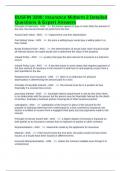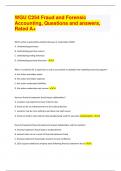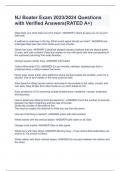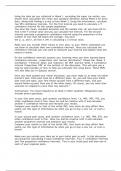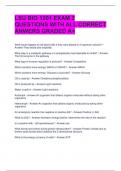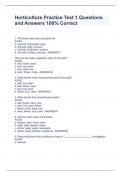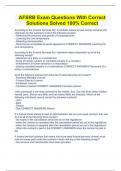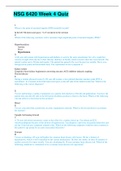Exam (elaborations)
BUSFIN 3300: Insurance Midterm 2 Detailed Questions & Expert Answers
- Course
- Institution
Principle of Indemnity - ANS >> the insurer agrees to pay no more than the amount of the loss; the insured should not profit from the loss Actual Cash Value - ANS >> replacement cost less depreciation Fair Market Value - ANS >> the price a willing buyer would pay...
[Show more]
